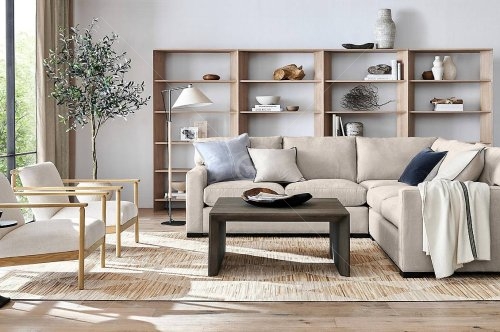The Ultimate Guide to Bunk Beds for Kids: Everything You Need to Know

When it comes to designing a kid’s bedroom, bunk beds are a versatile and space-saving solution that blends both functionality and fun. Whether you’re trying to make the most of a smaller room, create a sense of adventure for your children, or need extra sleeping space for guests, bunk beds are an ideal choice. In this comprehensive guide, we explore everything you need to know about bunk beds for kids, from the different types available to essential safety considerations, tips for choosing the right design, and the benefits of having bunk beds in your child’s room.
What Are Bunk Beds for Kids?
Bunk beds for kids are a type of bed where one bed frame is stacked on top of another. This design allows two or more children to sleep in the same room without taking up the full space of multiple individual beds. Bunk beds can be made from a variety of materials such as wood, metal, or a combination of both. They come in various configurations, from traditional two-level bunks to more elaborate designs with features like desks, storage, or even slides for added fun.
Why Choose Bunk Beds for Your Kids’ Room?
Bunk beds offer several advantages, making them a popular choice for parents seeking to maximize their children’s bedroom space. Here are some key benefits:
- Space-Saving Solution: With bunk beds, you can free up floor space for other furniture or play areas, ideal for smaller rooms.
- Cost-Effective: Rather than purchasing multiple beds, a bunk bed provides two or more sleeping areas for the price of one.
- Fun Factor: Kids love the novelty of bunk beds. Whether it’s a top bunk to feel like a "king of the castle" or a slide to add excitement, bunk beds can make bedtime more fun.
- Encourages Bonding: Sharing a room with a sibling or friend can encourage closeness and foster a sense of companionship.
Types of Bunk Beds for Kids
When selecting the right bunk bed, it’s essential to understand the different types available. The ideal choice will depend on your space, your children's ages, and your style preferences. Let’s explore some of the most popular types of bunk beds for kids.
1. Standard Twin Over Twin Bunk Bed

The most common configuration is the twin over twin bunk bed. This design consists of two twin-sized mattresses stacked on top of one another. It's a great option for siblings who are of similar size and age. With a twin-sized mattress on each level, this style is compact and fits in most rooms.
2. Twin Over Full Bunk Bed

A twin over full bunk bed features a twin-sized bed on the top and a full-sized bed on the bottom. This is a perfect choice if one child is significantly larger or older than the other, as the bottom bunk provides extra space. It's also ideal for accommodating guests or sleepovers, as the full-size bottom bunk can comfortably sleep an adult or multiple children.
3. Triple Bunk Beds

If you have three children sharing a room, triple bunk beds can provide a solution. These beds are typically designed with three stacked beds, either in a traditional vertical arrangement or in an L-shape to fit into a corner of the room. Triple bunks maximize sleeping space while maintaining a compact footprint.
4. Lofted Bunk Beds

For those seeking to add extra functionality to their children's room, lofted bunk beds are a fantastic option. These beds have the top bunk elevated, leaving the bottom space open for other uses, such as a play area, a desk for homework, or additional storage. Lofted beds are an excellent choice for older children who don’t need a full-sized bed at the bottom.
5. Bunk Bed with Storage

Many modern bunk beds for kids come with built-in storage solutions. From drawers beneath the bottom bunk to shelves and cubby spaces in the frame, these beds maximize storage while minimizing the need for extra furniture. This is particularly helpful for organizing clothes, toys, and other essentials in smaller rooms.
6. Bunk Beds with Desks

If you want to combine sleep and study, consider a bunk bed with a desk. The desk is often placed beneath the top bunk, providing an efficient and space-saving area for kids to study, do homework, or engage in creative activities. This is an excellent option for older children who need more space for academic tasks while still keeping their room tidy.
7. Futon Bunk Beds

Futon bunk beds combine the traditional two-level bed design with a comfortable futon-style seating area beneath the top bunk. This type of bed is ideal for creating a versatile space that can easily switch between sleeping and lounging. Futon bunk beds work well in shared rooms or even as a guest bed for when friends or family visit.
Safety Considerations for Kids’ Bunk Beds
While bunk beds are fun and practical, safety should always be a top priority. Here are some important safety features and guidelines to consider when selecting and using bunk beds for kids:
1. Secure Guardrails
Make sure the top bunk is equipped with sturdy guardrails on all sides to prevent falls. Guardrails should be at least 5 inches higher than the mattress to provide adequate protection. Additionally, ensure there is no gap between the guardrails and the mattress, as this could pose a risk of entrapment.
2. Proper Ladder Design
The ladder should be securely attached to the bed frame and have steps that are wide and stable enough for your child to climb safely. Avoid ladders with wide gaps between steps or those that might be difficult for younger children to use.
3. Age Appropriateness
The American Academy of Pediatrics (AAP) advises that children under 6 years old should not sleep on the top bunk due to the risk of falls and injuries. Always consider your child’s age and maturity level before allowing them to use the top bunk.
4. Sturdy Construction
Ensure that the bunk bed frame is built from strong materials such as solid wood or heavy-duty metal. The bed should be able to withstand the weight of two children and be stable enough to prevent wobbling or tipping.
5. Regular Inspections
Regularly check the bunk bed for loose screws, broken parts, or any damage that might compromise safety. Perform these inspections every few months to keep the bed in top condition.
How to Choose the Right Bunk Bed for Your Kids
When selecting the perfect bunk bed for your children, several factors need to be considered. Follow these tips to make an informed decision:
1. Room Size
Before choosing a bunk bed, measure the room to ensure it will fit comfortably. Consider both the height and length of the bed to ensure there’s enough space for other furniture and that it won’t make the room feel cramped.
2. Material and Style
3. Functionality
Think about how the bunk bed can serve your child’s needs beyond just providing a sleeping area. Do they need additional storage space? Would they benefit from a desk or bookshelves? These additional features can enhance the functionality of the room.
4. Budget
Bunk beds come in a wide range of price points. While you can find budget-friendly options, investing in a higher-quality bunk bed can pay off in the long run, especially if it comes with added features like storage or a durable frame.
5. Safety Features
As mentioned earlier, safety is paramount. Look for beds with solid guardrails, stable ladders, and a sturdy frame. Always check the manufacturer’s guidelines and age recommendations before purchasing.
How to Style a Room with Bunk Beds
Once you’ve chosen the perfect bunk bed, it’s time to style the room. Here are some tips for decorating around the bunk beds:
- Use Vertical Space: Bunk beds naturally draw the eye upward, so take advantage of wall-mounted shelves or hooks for extra storage.
- Add Personal Touches: Let each child personalize their space with bedding, curtains, and wall art that reflect their interests and personalities.
- Brighten the Room: Use light-colored walls and accessories to make the room feel larger and brighter, especially in smaller spaces.
- Create a Play Area: If your child has the bottom bunk, transform the space beneath into a cozy reading nook or a place for imaginative play.
Conclusion
Bunk beds for kids are an excellent solution for optimizing space, fostering fun, and providing a practical sleeping arrangement. With a wide variety of designs, features, and materials to choose from, there’s a bunk bed to suit every child’s needs and every home’s decor. When choosing the right bunk bed, always consider safety, functionality, and how the bed will enhance the overall design of the room. With the right selection, a bunk bed can be both a practical and fun addition to your child’s bedroom, providing years of use and enjoyment.





